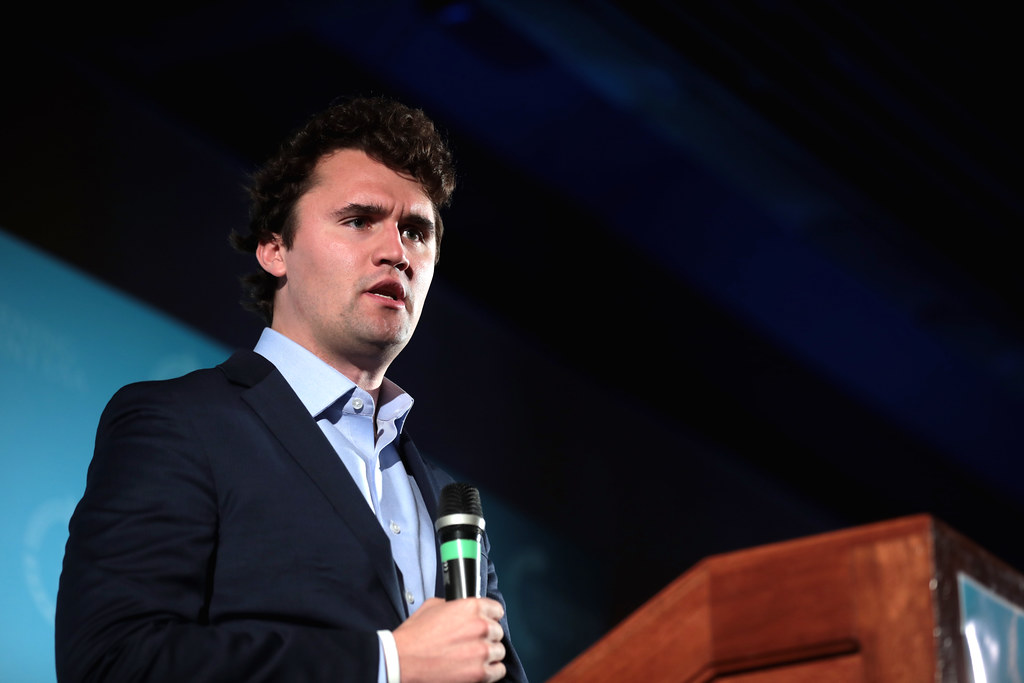Key Takeaways
• Treasury Secretary Scott Bessent called Charlie Kirk’s murder a “domestic 9/11 moment.”
• Former GOP strategist Tim Miller said Scott Bessent has “gone insane.”
• Critics reject comparing one killing to the scale of 9/11.
• Concerns grow over Scott Bessent’s plan to target left-wing group funding.
Scott Bessent’s 9/11 Comparison Stuns Republicans
Treasury Secretary Scott Bessent shocked many when he appeared on The Charlie Kirk Show. During the interview, he described the killing of conservative activist Charlie Kirk as a “domestic 9/11 moment.” His words stunned listeners. He suggested using the same security tools created after the 2001 attack on the Twin Towers. In his view, those tools could help track and stop political violence at home. However, his statement sparked a fierce backlash. Even some former allies called the comment extreme and alarming.
In simple terms, Scott Bessent’s comment linked a tragic murder to our nation’s worst terror attack. Yet 9/11 claimed more than 3,000 lives and changed global policy. By contrast, Charlie Kirk’s death, while brutal and shocking, was one act of violence. Many found the comparison unfair. They warned it risks confusing public memory and inflaming political tensions.
Tim Miller on Scott Bessent’s Radical Plan
Tim Miller, host of The Bulwark Podcast, reacted quickly. On a Bulwark Takes episode, he said, “Our Treasury Secretary, Scott Bessent, has gone insane.” He added that Bessent seemed “high on his power” and called his 9/11 comparison “crazy.” Miller admitted Kirk’s murder was “sick” and “disgusting,” but he drew a clear line between that crime and the mass attack on September 11, 2001.
Miller pointed out that 9/11 led to massive loss of life and global conflict. Therefore, he said, it makes no sense to use the same tools against single perpetrators. He argued that domestic surveillance powers should not be repurposed for political enemies or activist groups. Instead, he urged a focus on traditional law enforcement and intelligence work.
Conservative Voices Push Back
Meanwhile, other conservative figures expressed alarm. Some called Scott Bessent’s remarks a political stunt. They insisted that turning the Treasury Department into a political weapon risks civil liberties. Indeed, the department controls banking oversight and financial sanctions. Thus, critics worry about misusing these powers against peaceful organizations.
Many conservatives also noted that Bessent’s role is to manage economic policy, not national security. As a result, they questioned his qualifications to propose new surveillance methods. They said he should stick to treasury issues like interest rates and debt management. Otherwise, they fear his overreach could erode public trust.
What Scott Bessent Proposes Next
According to his podcast interview, Scott Bessent plans to examine how left-wing groups raise and spend money. He hinted at stricter rules and penalties for nonprofits that fund certain causes. Furthermore, he suggested using intelligence data to track financial ties. However, he offered few details on legal safeguards or oversight.
Critics warn this could chill free speech. They worry small grassroots groups might face audits or sanctions just for their views. In turn, that could hurt fundraising and scare off donors. Therefore, many call for clearer rules before any action. They also urge Congress to weigh in and set boundaries.
Political Fallout and Future Risks
As a result of these events, Bessent now faces growing scrutiny from both parties. Some Democrats fear alienating moderate voters who value civil liberties. Meanwhile, Republicans see an opportunity to rally around issues of government overreach. Consequently, the debate may intensify in upcoming congressional hearings.
In addition, media outlets will continue to track any moves by the Treasury Department. If new regulations or investigations emerge, the fights will likely end up in court. At that point, judges may have to decide how far financial oversight can stretch into political speech.
Lessons for American Democracy
This episode highlights a key tension in modern politics. On one hand, leaders want to respond strongly to violence and threats. On the other hand, they must protect free expression and due process. Balancing security and liberty remains a central challenge. Especially when officials propose sweeping measures in the heat of public emotion.
Furthermore, it shows how language shapes debate. Comparing a murder to 9/11 carries enormous weight. Therefore, public figures should choose words carefully. Otherwise, they risk undermining their own credibility and fueling conspiracy theories.
What Comes Next
Moving forward, Scott Bessent may clarify or walk back his comments. He could release a detailed plan outlining legal checks. Alternatively, he might face pressure to resign or step aside from oversight of political finance. Meanwhile, Congress may draft legislation to limit the Treasury Department’s power in political matters.
Regardless, this incident has ignited a fierce national discussion. It reminds us that our democracy relies on clear rules and respectful dialogue. If leaders overstep, citizens and institutions must push back. Only then can we maintain both security and freedom.
FAQs
What did Scott Bessent say about Charlie Kirk’s death?
Treasury Secretary Scott Bessent called Charlie Kirk’s assassination a “domestic 9/11 moment,” suggesting similar security measures could apply.
Why did Tim Miller call Scott Bessent insane?
Tim Miller argued the 9/11 comparison was extreme and warned against using terror-response tools for a single murder case.
Could the Treasury Department really target political groups?
The department controls financial regulations, so it could increase audits or penalties for groups. However, any major change needs legal approval and oversight.
What are the risks of using 9/11 tools against domestic threats?
Using broad surveillance and financial powers can infringe on free speech and privacy. It may also politicize law enforcement and weaken public trust.
